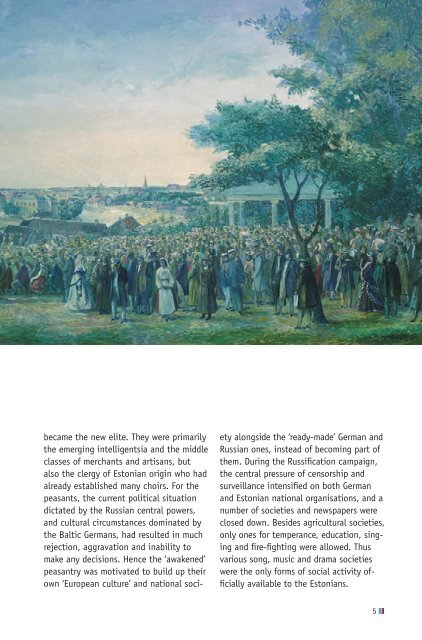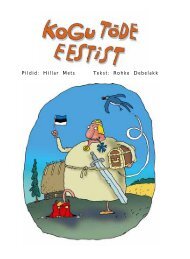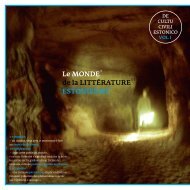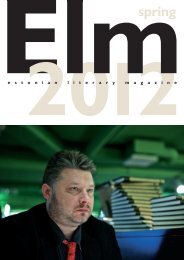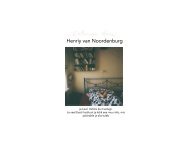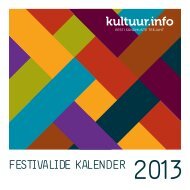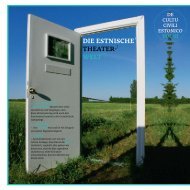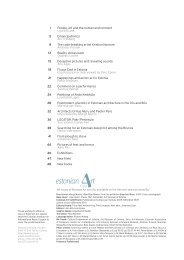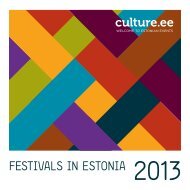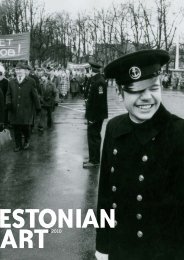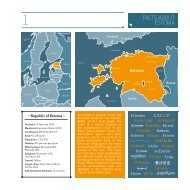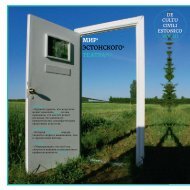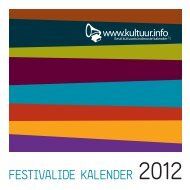Create successful ePaper yourself
Turn your PDF publications into a flip-book with our unique Google optimized e-Paper software.
ecame <strong>the</strong> new elite. They were primarily<br />
<strong>the</strong> emerging intelligentsia and <strong>the</strong> middle<br />
classes <strong>of</strong> merchants and artisans, but<br />
also <strong>the</strong> clergy <strong>of</strong> Estonian origin who had<br />
already established many choirs. For <strong>the</strong><br />
peasants, <strong>the</strong> current political situation<br />
dictated by <strong>the</strong> Russian central powers,<br />
and cultural circumstances dominated by<br />
<strong>the</strong> Baltic Germans, had resulted in much<br />
rejection, aggravation and inability to<br />
make any decisions. Hence <strong>the</strong> ‘awakened’<br />
peasantry was motivated to build up <strong>the</strong>ir<br />
own ‘European culture’ and national society<br />
alongside <strong>the</strong> ‘ready-made’ German and<br />
Russian ones, instead <strong>of</strong> becoming part <strong>of</strong><br />
<strong>the</strong>m. During <strong>the</strong> Russification campaign,<br />
<strong>the</strong> central pressure <strong>of</strong> censorship and<br />
surveillance intensified on both German<br />
and Estonian national organisations, and a<br />
number <strong>of</strong> societies and newspapers were<br />
closed down. Besides agricultural societies,<br />
only ones for temperance, education, singing<br />
and fire-fighting were allowed. Thus<br />
various song, music and drama societies<br />
were <strong>the</strong> only forms <strong>of</strong> social activity <strong>of</strong>ficially<br />
available to <strong>the</strong> Estonians.<br />
5


